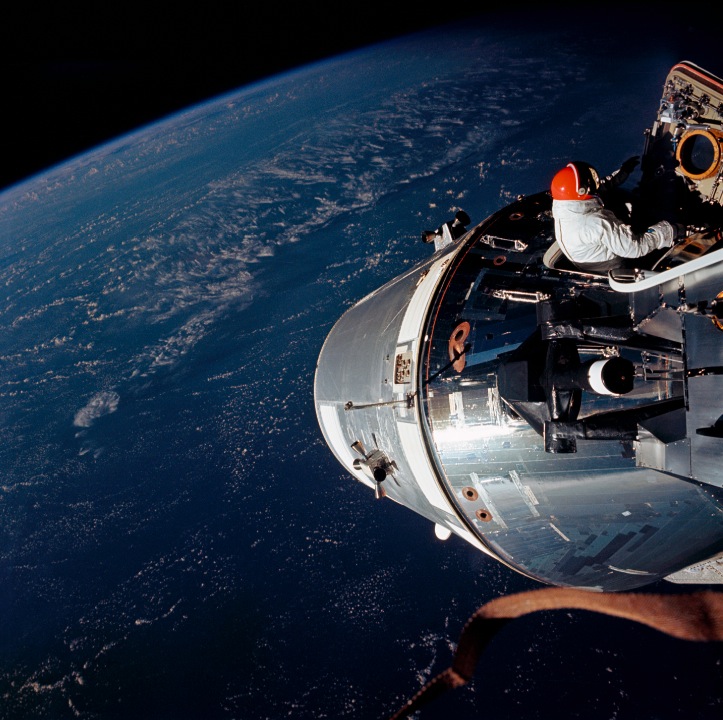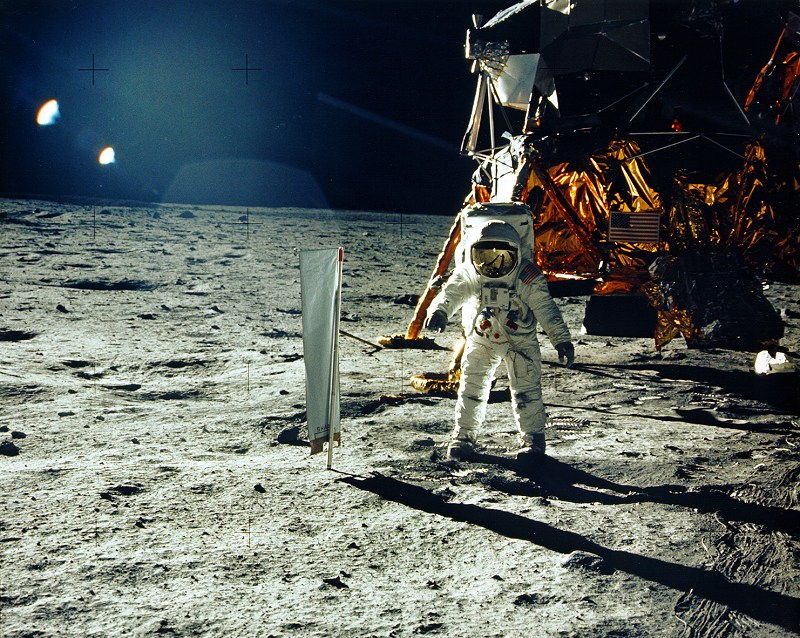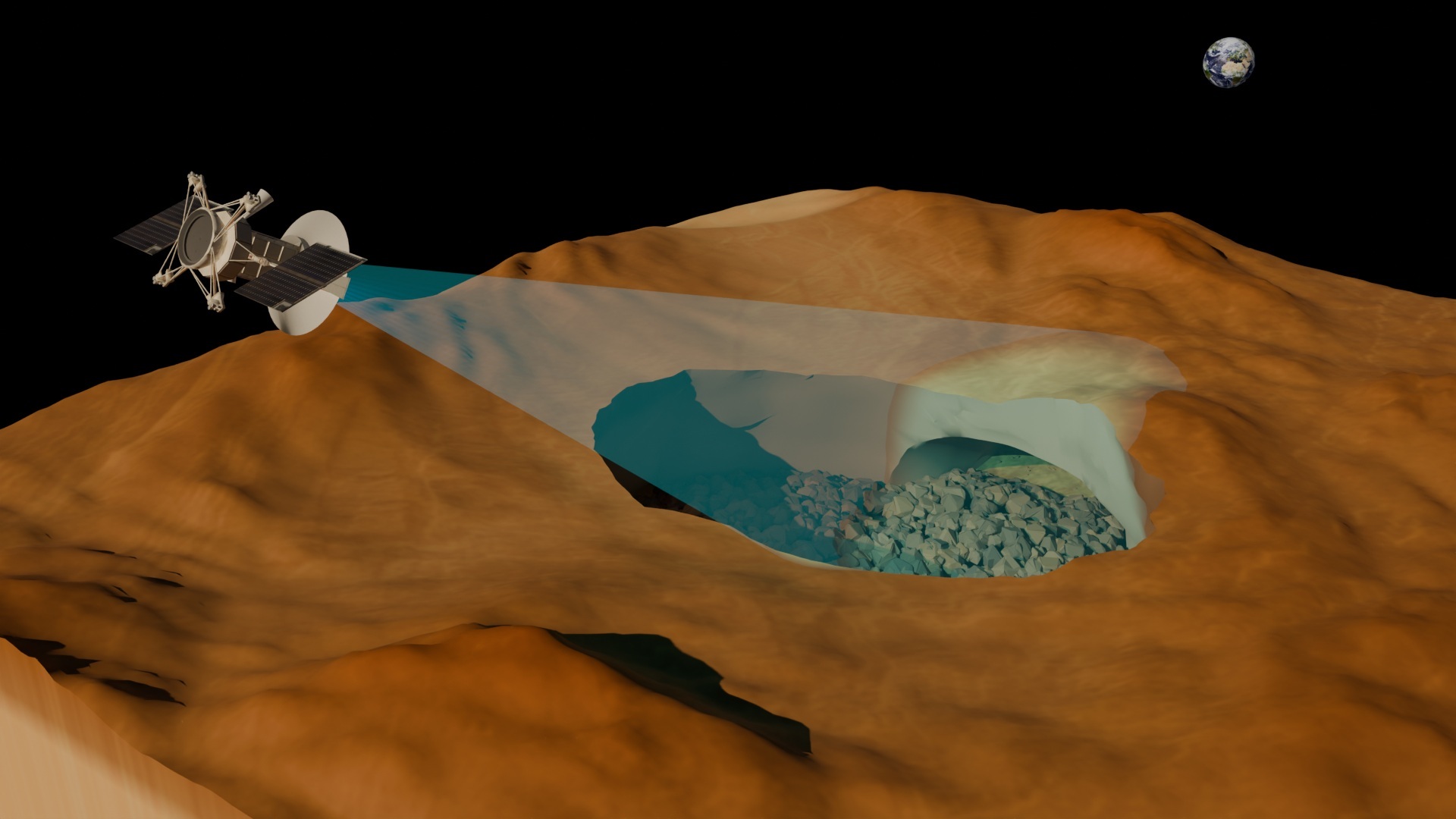On Apollo 9, a Jammed Camera Changed Spacewalking Astronaut's Life (Video)

Breaking space news, the latest updates on rocket launches, skywatching events and more!
You are now subscribed
Your newsletter sign-up was successful
Want to add more newsletters?

Delivered daily
Daily Newsletter
Breaking space news, the latest updates on rocket launches, skywatching events and more!

Once a month
Watch This Space
Sign up to our monthly entertainment newsletter to keep up with all our coverage of the latest sci-fi and space movies, tv shows, games and books.

Once a week
Night Sky This Week
Discover this week's must-see night sky events, moon phases, and stunning astrophotos. Sign up for our skywatching newsletter and explore the universe with us!

Twice a month
Strange New Words
Space.com's Sci-Fi Reader's Club. Read a sci-fi short story every month and join a virtual community of fellow science fiction fans!
A camera glitch gave spacewalking Apollo astronaut Rusty Schweickart five of the most profound minutes of his life.
Schweickart, the lunar module pilot on NASA's Apollo 9 mission to low-Earth orbit in March 1969, had just exited his vehicle when command module pilot Dave Scott told him to hang on, Schweickart recalled in a new video about the Apollo 9 spacewalk.
Scott was documenting the spacewalk — the first of the Apollo era — from the open command module hatch with his movie camera, and the instrument had jammed.
"Jim McDivitt, who's the [Apollo 9] commander, says, 'OK, Dave, I can give you five minutes to try and fix it, and Rusty, stay right where you are,'" Schweickart said in the video, which was produced by the nonprofit XPrize Foundation as part of its XPrize Insights series.
"So I figured, 'Hey, great. This is my opportunity to really appreciate what's going on,'" Schweickart added. "So I just let go with one hand, and just sort of swung around, looked at the Earth below and the black space above and the sun over my shoulder. And, I mean, it was this incredible, spectacular view."
The astronauts' radio system was voice-activated at the time, Schweickart said, so no sounds intruded upon his thoughts, which went to some pretty deep places.
"How did I get here? Humanity has reached this point where we're moving out from the Earth. I'm a small part of that, but that's what's going on. How does that happen in history?" said Schweickart, who was 33 years old at the time of the spacewalk. "Who am I? Am I 'me,' or am I 'us?' It's very clear that you're there as a representative of humankind. This is humanity moving out, and you're just the representative on that frontier."
Breaking space news, the latest updates on rocket launches, skywatching events and more!
Schweickart has continued to be an influential figure in the space community in the decades after Apollo 9, which marked his only trip to space. In the mid-1980s, for example, he cofounded the Association of Space Explorers. And in 2002, he co-founded the B612 Foundation, a nonprofit organization dedicated to defending Earth against cataclysmic asteroid strikes.
Follow Mike Wall on Twitter @michaeldwall and Google+. Follow us @Spacedotcom, Facebook or Google+. Originally published on Space.com.

Michael Wall is a Senior Space Writer with Space.com and joined the team in 2010. He primarily covers exoplanets, spaceflight and military space, but has been known to dabble in the space art beat. His book about the search for alien life, "Out There," was published on Nov. 13, 2018. Before becoming a science writer, Michael worked as a herpetologist and wildlife biologist. He has a Ph.D. in evolutionary biology from the University of Sydney, Australia, a bachelor's degree from the University of Arizona, and a graduate certificate in science writing from the University of California, Santa Cruz. To find out what his latest project is, you can follow Michael on Twitter.

